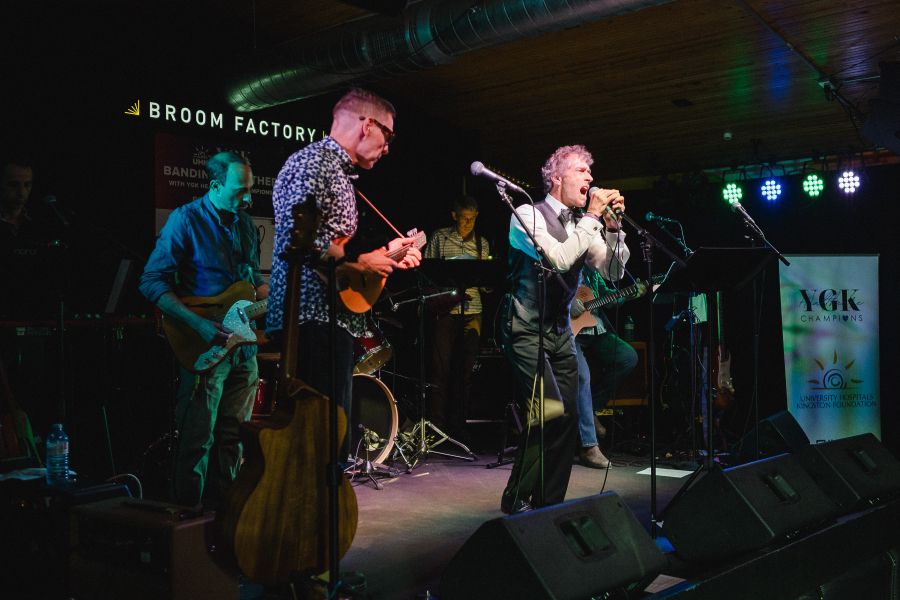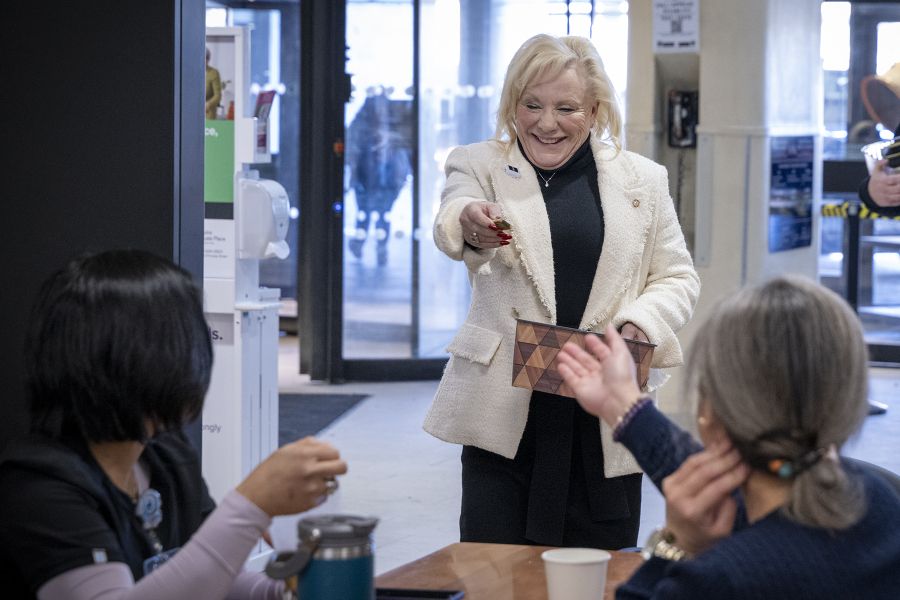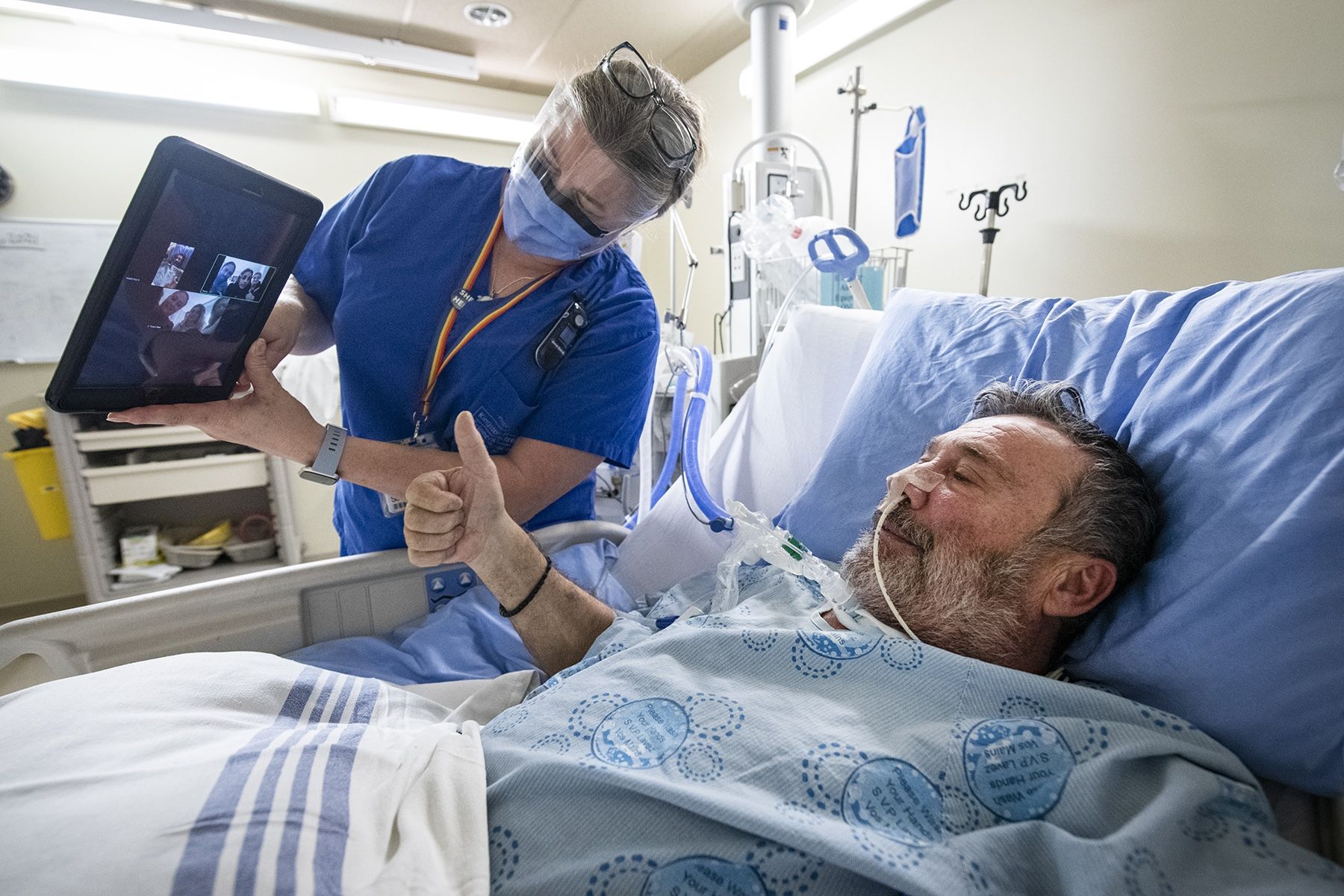
When Penny Tasevski was asked to describe her father-in-law Aleko Tasevski before he fell critically ill with COVID-19, her voice cracked. “He lives for us [his family], and before he was hospitalized he made my day, every single day.”
Penny has been a part of the Tasevski family for over 27 years, and she knows Aleko (she calls him Dedo, Macedonian for grandfather) to be kind, active, young for his 69 years and someone that is always ‘there whenever you need him.’
Aleko has two children and their spouses, two granddaughters and three granddogs. “For the full year before he got sick, he would pick up his granddogs every day and get in over 20,000 steps taking them for walks. He would also bring me coffee every morning – he is just the best.”
It has been one month since Aleko was transferred from a hospital in the Greater Toronto Area (GTA) to an Intensive Care Unit (ICU) at Kingston Health Sciences Centre (KHSC). “It has been hard, really hard, having the strong, independent patriarch of our family wrestle with COVID,” says Penny.
‘The strongest person I know has been taken down by this’
The Tasevski family hasn’t been able to trace how Aleko caught COVID-19. They followed public health precautions, no one they know was sick and they weren’t alerted to any risk of exposure in the community. But the family says they knew something was up when his colouring changed and he started ‘saying weird stuff, because he is normally so clever and with it.’
“By the time he got to the GTA hospital, his blood oxygen level was at 65 per cent,” says Penny. Normal oxygen levels are between 95 and 100 per cent. “That day was the worst, and we’ve been scared and worried ever since.”
“We’re so appreciative of the care he is receiving in Kingston, and how generous everyone has been with their time, even though I can imagine how tough their jobs are right now. Every extra minute they give us to ask another question does not go unnoticed, and we are very grateful.”
KHSC social worker Cathy MacGillivary has been in regular contact with the family for several weeks. In addition to assessing families’ psychological and social needs, she says social workers are often a consistent contact for families because they don’t work on rotation or shifts like other health-care workers.
“I encourage families to call the ICU once or twice a day if they are worried; sometimes they are reluctant because they think we’re too busy, but we don’t want them wondering how their family member is doing in the middle of the night, when they can get an update with a quick phone call and then rest easier,” says MacGillivary.
The importance of family connection
“As patients start to become more aware of their surroundings – for instance, as they wake up from a coma – that’s when we get the family more involved in their loved one’s healing,” says MacGillivary. She encourages families to email family photos that can be printed and put up in patients’ rooms, and she introduces them to visiting virtually.
“It can be tough at first,” says MacGillivary, “to see a family member in a hospital bed with machines and tubes around them. So, it is not always for everyone, and we are very careful about preparing the family for what they will see.”
Aleko’s room has been plastered with family photos, including many photos of the dogs. Penny and her husband were the first ones to visit with Aleko via a Zoom video call. She says the call was ‘an important opportunity to see him,’ and discover he looked better than what she imagined.
In this early stage, MacGillivary says she plays a crucial role in facilitating the virtual visits because patients are often too weak to hold the iPad and don’t have their voices back yet.
“I’m pretty good at reading lips, and as I get to know a patient, I learn how to decipher their body language, which can be helpful for family members on the other end,” says MacGillivary. “As I watch Aleko slowly come back from this, I can see the man Penny describes… I think he is fun-loving and likes to tease.” Penny agrees.
Despite a setback early on, and as the days go by, Aleko becomes more engaged in the virtual visits with his wife, kids, grandkids and the dogs. He waves, smiles, gives a hearty thumbs up and blows kisses to their faces on the screen. And, he wants to hold MacGillivary’s hand, and she is more than happy to offer this human touch.
For Aleko, it’s also important that he can see that his family is doing okay. “He has the biggest heart and he is always more concerned about everyone else than himself,” says Penny.
‘Not out of the woods yet’
While Aleko is no longer COVID positive and he is slowly being weaned off the ventilator that helps him breathe, Penny continues to worry about his health and says, “He’s not out of the woods yet. We don’t know for sure what the rest of this journey looks like, but we’re hoping for the best.”
As the family takes one day at a time and awaits the return of his voice, Penny imagines him wanting to say, “When can I go home? I’ve got things to do; my family needs me.” The dogs seem to need him too. She says, “They continue to look out the window at the same time of day he would normally pick them up, and they wait for him.”
She also took a moment to fondly imagine if the family lived in Kingston and says, “Dedo’s the kind of person that would stop by the hospital after this and bring fruit baskets or other treats to everyone who gave him such great care.”
Gallery
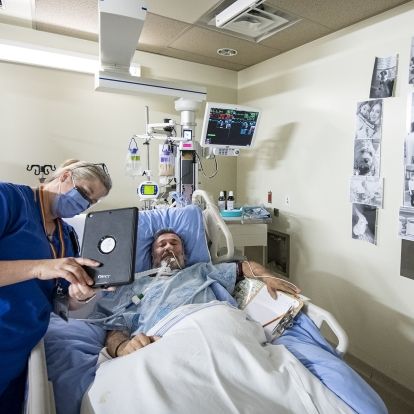
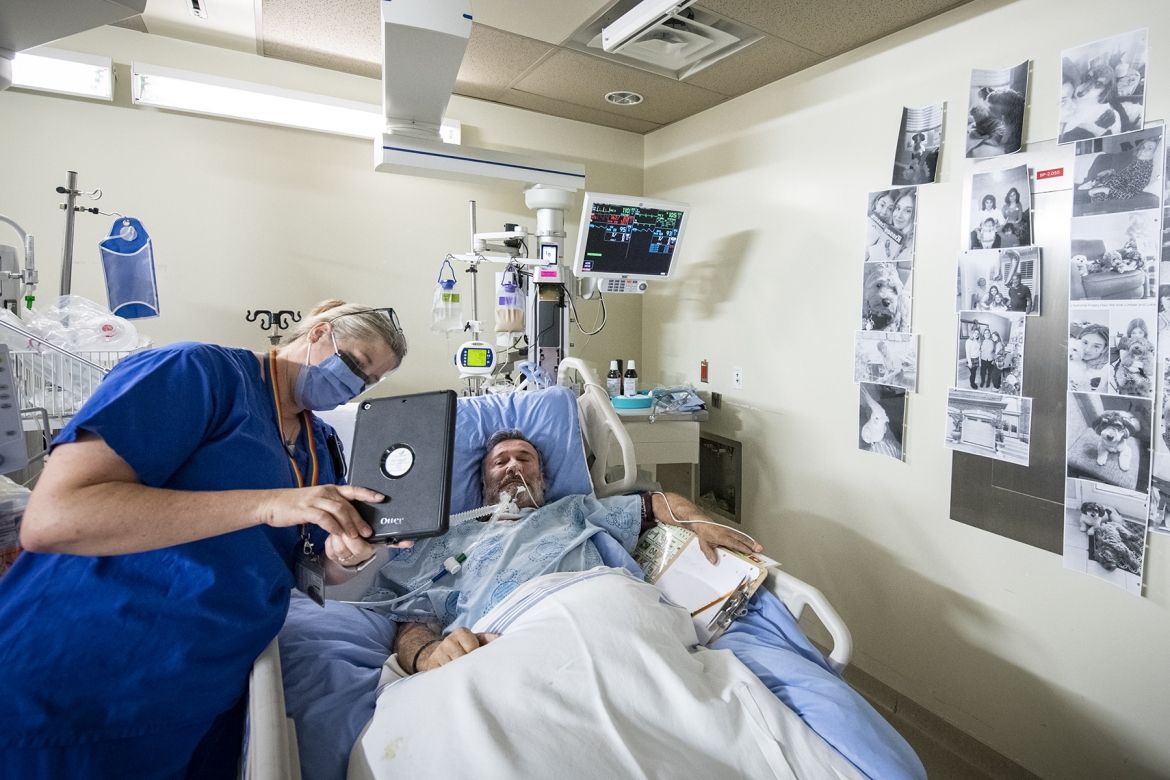
Social worker Cathy MacGillivary encouraged the Tasevskis to email family photos, which are now plastered on the wall of his room.

